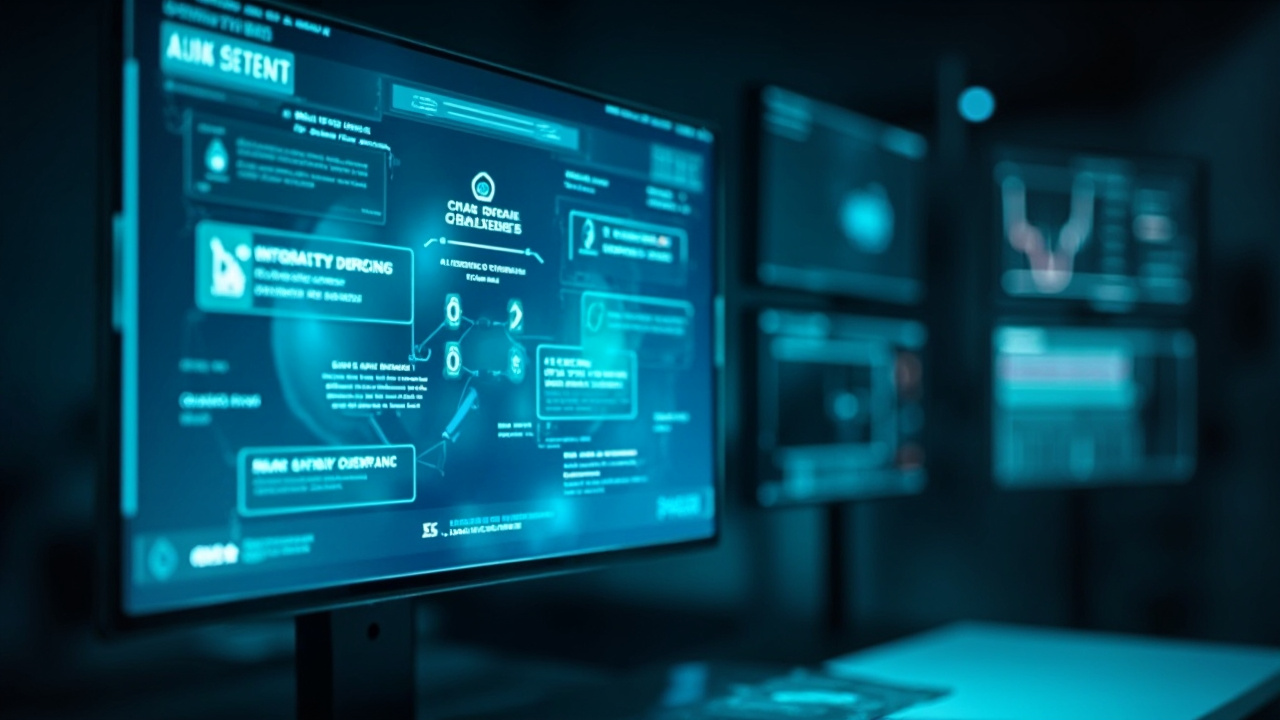In the ever-evolving domain of software development, achieving impeccable quality is no longer a luxury it’s a necessity. As applications become more complex and development cycles accelerate, traditional software testing methods often find themselves lagging behind. Is there a viable solution that can keep pace with the demands of modern software development while ensuring superior quality? Enter Artificial Intelligence a transformative force that is redefining the landscape of software testing.
Software testing has always been a critical component of the development process, ensuring that applications function as intended and deliver a seamless user experience. However, as the demands on software have increased, so too have the challenges faced by testing teams. With the integration of AI technologies, these challenges are not only being addressed but are also leading to unprecedented levels of testing efficiency and effectiveness.
This exploration into the world of AI-powered software testing will delve into how artificial intelligence is revolutionizing testing methodologies, the benefits it brings, and the tools like GenQE that are pioneering this transformation. Whether you’re a software engineer, quality assurance professional, or tech enthusiast, understanding the impact of AI on software testing is crucial to staying ahead in this fast-paced industry.
The Evolution of Software Testing: From Manual to AI-Powered

The journey of software testing has been one of continuous evolution, adapting to the ever-changing landscape of software development. Initially, testing was a manual process, heavily reliant on human intervention and prone to errors. As software complexity grew, automated testing emerged, providing a more efficient alternative. Today, AI is poised to take software testing to new heights.
From Manual to Automated Testing
In the early days, software testing was a labor-intensive process. Testers manually executed test cases, meticulously documenting results and identifying defects. While effective for small-scale projects, this approach was neither scalable nor sustainable for larger, more complex systems.
Automated testing was a game-changer, introducing scripts and tools that could execute test cases without human intervention. This not only increased efficiency but also improved accuracy by reducing human error. However, automated testing still required significant manual effort in script creation and maintenance, particularly when applications underwent frequent updates.
The Rise of AI in Software Testing
AI technologies are now infusing software testing with capabilities once thought impossible. By leveraging machine learning algorithms and data analytics, AI-driven tools can generate test cases, prioritize testing efforts, and even predict potential defects before they manifest. This represents a paradigm shift, moving from reactive to proactive testing strategies.
“AI is not just a tool for software testing it’s an evolution in the way we think about quality assurance.”
AI’s ability to learn from historical data and user behavior allows it to adapt to changes in the software environment, ensuring that testing remains relevant and effective, even as applications evolve. This adaptability is crucial in today’s rapid development cycles, where time-to-market is a critical factor.
Key Benefits of AI-Powered Software Testing

The integration of AI into software testing processes brings a multitude of benefits, enhancing not only the quality of software but also the efficiency and effectiveness of testing teams. Let’s explore these advantages in detail.
Enhanced Test Coverage and Accuracy
One of the most significant benefits of AI in software testing is its ability to provide comprehensive test coverage. AI-driven tools can analyze vast amounts of data to identify patterns and anomalies, ensuring that even the most obscure defects are detected. This level of coverage is difficult to achieve with traditional testing methods.
By automating the generation and execution of test cases, AI reduces the risk of human error, leading to more accurate testing outcomes. This accuracy is further enhanced by AI’s ability to adapt to changes in the software environment, ensuring that test cases remain relevant and effective over time.
Improved Efficiency and Reduced Costs
AI-powered testing tools significantly reduce the time and effort required to conduct thorough testing. By automating repetitive tasks and prioritizing high-impact test cases, AI allows testing teams to focus on more complex and strategic activities. This not only accelerates the testing process but also reduces costs associated with manual testing efforts.
Moreover, by detecting defects early in the development cycle, AI helps prevent costly rework and production issues. This proactive approach to defect detection leads to cost savings and faster time-to-market for software applications.
Scalability and Flexibility
AI-driven testing solutions are highly scalable, making them ideal for enterprise-level projects and applications with rapidly changing requirements. As software evolves, AI tools can adapt, ensuring that testing remains effective and efficient, regardless of scale or complexity.
“AI brings unparalleled scalability and flexibility to software testing, ensuring that quality remains a priority even as projects grow in size and complexity.”
Exploring AI Technologies in Software Testing

The implementation of AI in software testing encompasses a variety of technologies, each contributing to different aspects of the testing process. Understanding these technologies is essential for leveraging AI effectively in your testing strategy.
Machine Learning and Data Analytics
At the core of AI-powered testing is machine learning, a technology that enables systems to learn from data and improve over time. Machine learning algorithms can analyze historical testing data to identify trends and predict potential defects, allowing teams to address issues proactively.
Data analytics further enhances this process by providing insights into user behavior and software performance. By analyzing usage patterns, AI tools can prioritize test cases, focusing efforts on areas most likely to impact user experience and software quality.
Natural Language Processing (NLP)
Natural Language Processing (NLP) is another critical technology in AI-driven testing. NLP allows AI tools to interpret and understand human language, enabling more intuitive interactions with testing scripts and requirements. This capability is particularly useful for generating test cases from user stories or requirements written in natural language.
AI-Powered Automation and Self-Healing
AI’s automation capabilities extend beyond traditional test execution to include self-healing mechanisms. When software changes break existing test scripts, AI can automatically adjust these scripts, minimizing maintenance efforts and reducing downtime. This self-healing ability ensures that testing remains continuous and effective, even as software evolves.
“Self-healing automation is a game-changer, allowing testing teams to focus on innovation rather than maintenance.”
Practical Applications of AI in Software Testing

AI is not just a theoretical concept in software testing; it is being applied in real-world scenarios with tangible results. Let’s explore some practical applications of AI-driven testing solutions and their impact on software quality.
AI-Driven Test Case Generation
One of the most time-consuming aspects of software testing is the creation of test cases. AI tools streamline this process by automatically generating test cases based on software requirements, user behavior, and historical data. This not only saves time but also ensures that test cases are comprehensive and relevant.
For example, GenQE, an AI-powered testing platform, utilizes machine learning to analyze application data and generate test cases that cover a wide range of scenarios. This approach reduces the dependency on manual test case design and improves overall test coverage.
Intelligent Test Case Prioritization
AI’s ability to analyze data and identify high-risk areas is invaluable for test case prioritization. By focusing testing efforts on critical parts of the application, AI ensures that potential defects are identified and addressed early in the development cycle.
Incorporating AI into testing workflows allows teams to optimize their resources, focusing on high-impact defects that could significantly affect user experience or software performance. This targeted approach leads to more efficient testing and higher quality software.
Proactive Defect Detection
AI’s predictive capabilities enable proactive defect detection, identifying potential issues before they manifest in production. By analyzing trends and patterns in test data, AI tools can alert teams to possible defects, allowing them to address issues before they impact end-users.
This proactive approach to defect detection is exemplified by platforms like GenQE, which uses machine learning to identify anomalies and predict potential defects early in the development process. This reduces the likelihood of critical issues reaching production and ensures a smoother user experience.
“Proactive defect detection transforms testing from a reactive process to a strategic initiative, enhancing software quality and user satisfaction.”
Overcoming Challenges in AI-Powered Software Testing

While AI offers significant advantages in software testing, it also presents its own set of challenges. Understanding these challenges is essential for effectively integrating AI into your testing strategy.
Data Quality and Availability
AI-driven testing relies heavily on data, and the quality of this data directly impacts the effectiveness of AI tools. Incomplete or inaccurate data can lead to incorrect predictions and suboptimal testing outcomes. Ensuring access to high-quality, relevant data is crucial for maximizing the benefits of AI in testing.
Organizations must invest in data management strategies to ensure that testing data is accurate, complete, and up-to-date. This includes implementing robust data collection processes and maintaining comprehensive historical testing data.
Integration with Existing Workflows
Integrating AI tools into existing testing workflows can be challenging, particularly for organizations with established processes and systems. Ensuring seamless integration requires careful planning and collaboration between development and testing teams.
AI platforms like GenQE address this challenge by offering seamless integration with popular DevOps and CI/CD tools, such as Jenkins, GitHub Actions, and Azure DevOps. This allows organizations to incorporate AI-driven testing into their existing workflows without significant disruption.
Skill Gaps and Training
The adoption of AI in testing requires new skills and expertise, which can be a barrier for some organizations. Training testing teams to effectively use AI tools is essential for realizing the full potential of AI-driven testing.
Organizations should invest in training and development programs to equip their teams with the skills needed to leverage AI technologies effectively. This includes understanding machine learning concepts, data analytics, and the specific AI tools being used.
“Addressing the challenges of AI in testing requires a strategic approach, focusing on data quality, integration, and skill development.”
The Future of Software Testing with AI

As AI continues to advance, its impact on software testing will only grow. Understanding the future possibilities of AI-powered testing is essential for staying ahead in the software development landscape.
Continuous Testing and DevOps Integration
The future of software testing is closely tied to the principles of DevOps and continuous integration/continuous deployment (CI/CD). AI will play a crucial role in enabling continuous testing, ensuring that quality is maintained throughout the development lifecycle.
By integrating seamlessly with DevOps tools, AI-driven testing platforms will allow for real-time feedback and faster release cycles. This continuous testing approach ensures that defects are identified and addressed early, reducing the risk of production issues.
AI-Enhanced User Experience Testing
User experience (UX) is a critical aspect of software quality, and AI is poised to enhance UX testing significantly. By analyzing user behavior and feedback, AI tools can identify areas for improvement and suggest changes that enhance user satisfaction.
AI-driven UX testing will allow organizations to deliver more intuitive and user-friendly applications, ensuring that user needs are met and exceeded. This focus on UX will be a key differentiator in the competitive software market.
Personalized Testing Experiences
As AI technology advances, personalized testing experiences will become more prevalent. AI tools will be able to tailor testing efforts to the specific needs and preferences of individual users, ensuring that testing is relevant and effective.
This personalized approach will lead to more accurate testing outcomes and higher software quality, as testing efforts are focused on areas most likely to impact user satisfaction.
“The future of software testing is bright, with AI leading the way in delivering continuous, personalized, and user-focused testing experiences.”
Conclusion: Embracing AI for Superior Software Quality

The integration of AI into software testing is not just a trend it’s a necessity for organizations seeking to deliver high-quality, reliable applications in today’s competitive market. AI-driven testing solutions offer unparalleled benefits, including enhanced coverage, efficiency, and proactive defect detection.
Platforms like GenQE are at the forefront of this transformation, providing innovative solutions that address the challenges of modern software testing. By leveraging AI technologies, organizations can reduce costs, accelerate development cycles, and deliver superior software quality.
As AI continues to evolve, its impact on software testing will only grow, leading to new possibilities and opportunities for innovation. For those ready to embrace this change, the future of software testing is bright, promising a new era of quality assurance.
“Embrace the power of AI in software testing and unlock a new level of quality assurance that meets the demands of modern software development.”
Explore the possibilities of AI-driven testing solutions like GenQE and take your software quality to the next level.
Discover More Innovative Solutions
Want to learn more about the tools and technologies discussed in this article? Explore how these innovations can be tailored to your specific needs and workflow requirements.
Our team of experts is available to answer your questions and provide personalized insights into how modern solutions like GenQE can address your specific challenges.
If the link above does not work, please visit: https://calendly.com/dm-csimplifyit/30min?month=2025-05